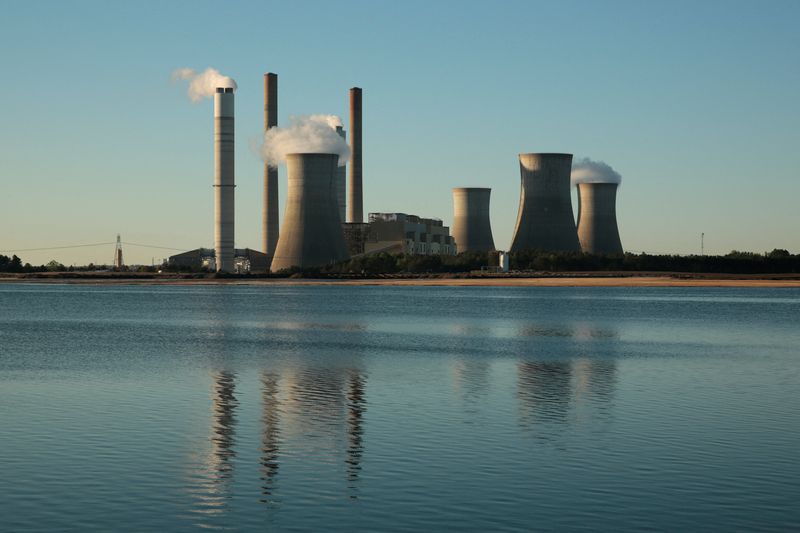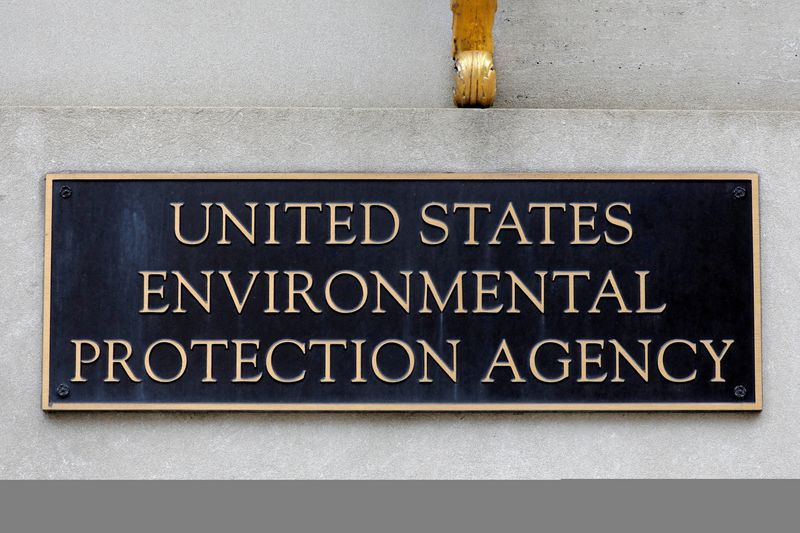By Clark Mindock
(Reuters) -Republican attorneys general from 27 U.S. states and industry trade groups sued the Environmental Protection Agency on Thursday, seeking to block a landmark rule requiring sweeping reductions in carbon emissions from existing coal-fired power plants and new natural gas plants.
The rule, finalized by President Joe Biden's administration last month as part of an effort to combat climate change, was challenged in multiple lawsuits filed in the U.S. Court of Appeals for the District of Columbia Circuit, including one by 25 states spearheaded by West Virginia and Indiana and another by Ohio and Kansas. Electric utility, mining and coal industry trade groups also filed lawsuits.
The rule mandates that many new gas and existing coal plants reduce their greenhouse gas emissions by 90% by 2032. The requirements are expected to force the U.S. power industry to install billions of dollars' worth of emissions control technologies or shut down the dirtiest facilities running on coal.
The regulations are part of Biden’s broader climate agenda and target a sector that is responsible for nearly a quarter of the country's greenhouse gas pollution.
The EPA declined to comment.
West Virginia Attorney General Patrick Morrisey said in a statement that the regulations are based on emissions reduction technologies that have not been meaningfully deployed in the real world, exceed the EPA's authority under the Clean Air Act, and would radically transform the nation’s energy grid without explicit congressional permission to do so.
He said the rule "is setting up the plants to fail and therefore shutter, altering the nation’s already stretched grid."
National Rural Electric Cooperative Association CEO Jim Matheson, whose organization represents nearly 900 local electric cooperatives and filed a lawsuit Thursday, said in a statement that the rule "is unlawful, unreasonable and unachievable."
The lawsuit came a day after 23 Republican attorneys general from states including West Virginia, North Dakota and Texas challenged a different EPA rule that limits the amount of mercury and other hazardous pollutants that can be emitted from power plants.
Legal experts say the EPA's assertion that the emissions reductions are feasible if power plants install carbon capture and sequestration (CCS) technologies - which capture emissions before they are released into the atmosphere - is likely to be a major issue in the litigation.
The Clean Air Act requires the EPA to set standards that are attainable using technologies that are “adequately demonstrated.” But while the EPA said it believes CCS is viable and cost-effective, opponents say the technology is not ready to be deployed at power plants across the country.
CCS has been installed at dozens of facilities that process various fuels, but just four coal-fired power globally have CCS installed, according to the Global CCS Institute.
“They’ve taken a pretty aggressive view of what it means to have something be adequately demonstrated, and I just think the Supreme Court will look at this and say EPA is out over its skis,” said Jeff Holmstead, a lawyer at the law firm Bracewell and a former EPA official during the administration of Republican former President George W. Bush.

But supporters say billions of dollars in funding in the 2022 Inflation Reduction Act will make CCS cost effective, and the Clean Air Act is designed to force technological advances.
“The law was developed to make sure these newer and yet-to-be-deployed technologies are deployed,” said Jay Duffy, a lawyer at the Center for Applied Environmental Law and Policy.
